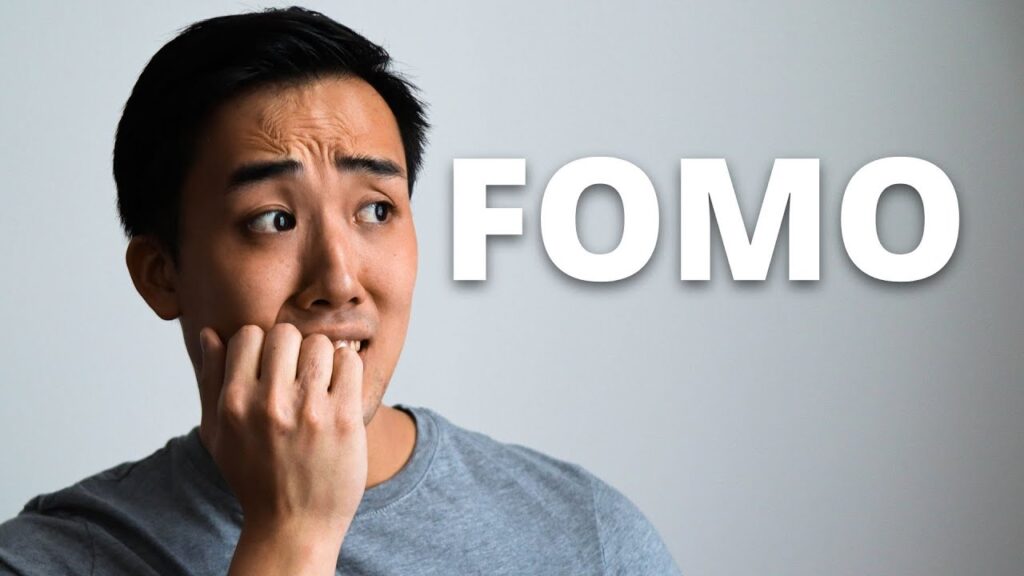If you’ve ever scrolled through Darren Campbell’s Instagram videos, you’ve probably noticed a common thread: he’s a master at using motivational language and big promises to draw people into his FBA Brand Builder program.
At first glance, his content feels inspiring—talking about financial freedom, life-changing opportunities, and overcoming doubt. But when you dig a little deeper, patterns emerge that reveal how his messaging might be more misleading than motivational.
We analyzed Darren’s videos (we were drinking at the time) and identified recurring themes in his rhetoric. While his words might sound empowering, they often leave out crucial details, paint an overly simplistic picture of success, and shift accountability squarely onto clients.
Let’s break down what he says—and why it raises red flags.
Theme 1: “Financial Freedom” Sold as Inevitable
Darren repeatedly positions financial freedom as an almost-guaranteed outcome for anyone who joins his program. He frames it as achievable for everyone, as long as they stay the course. In one video, he confidently states:
“Imagine waking up every day, knowing your bills are paid, your family is secure, and you’re living life on your terms.”
The Reality: That kind of imagery is powerful—but it conveniently skips over the hard realities of running an Amazon FBA business, like navigating high PPC costs, dealing with competitors, or even just finding a viable product niche. The result? A lot of clients go in expecting life-changing results, only to feel blindsided by the challenges they face.
Theme 2: Responsibility Shifted Onto Clients
Another big theme in Darren’s videos is his focus on personal accountability. While there’s truth in the idea that success requires effort, Darren uses this narrative to deflect responsibility from his program’s shortcomings. For instance, he says:
“You’ll never fail if you keep going. The only way to lose is to quit.”
The Reality: On the surface, that sounds motivational. But for clients who’ve experienced mismanaged ad campaigns, vague guidance, or poor mentorship, this kind of messaging feels like a convenient way to avoid addressing those issues. The implication? If you’re not succeeding, it’s on you—not the program.
Theme 3: Big Promises, Vague Details
Darren’s messaging often leans on sweeping promises without giving the details to back them up. For example:
“This isn’t a get-rich-quick scheme, but if you put in the work, you’ll see the results. Everyone who sticks with it wins.”
The Reality: This “trust the process” approach glosses over key variables like market demand, operational costs, and the time it takes to see any returns. By presenting the outcome as inevitable, Darren sets up unrealistic expectations that many clients have found difficult to meet.
Theme 4: Emphasizing a Sense of Urgency
In several videos, Darren creates a sense of urgency to push people toward joining the program quickly. He says things like:
“There are only so many slots available, and this opportunity won’t last forever. Don’t wait, because if you wait, you’ll regret it.”
The Reality: This kind of pressure can make potential clients feel like they have to act immediately—without taking the time to fully research the program or consider the risks.

Theme 5: Overstating the Support Network
Darren frequently talks about how the FBA Brand Builder community is a safety net for clients. In one video, he says:
“You’re never on this journey alone. You have a network of like-minded people to lean on.”
The Reality: While that might sound reassuring, many clients have reported the opposite experience, describing unresponsive brand managers and a lack of meaningful support. For those feeling isolated or stuck, the advertised camaraderie often falls short.
Theme 6: Claiming “Insider Secrets” and Exclusive Knowledge
Darren often positions himself as having unique insights or strategies that set his program apart. He says things like:
“What we teach isn’t something you can Google. This is insider knowledge that’s proven to work.”
The Reality: Statements like this play on the fear of missing out, convincing potential clients that they need to pay for access to information they supposedly can’t find anywhere else. But many clients have shared that the program often reiterates generic advice available through free resources online.
Theme 7: Framing His Program as Life-Changing
Darren often intertwines the success of his program with emotional appeals. He emphasizes how joining FBA Brand Builder isn’t just about money but about transforming lives. For instance:
“I’ve seen people go from rock bottom to six figures, all because they believed in themselves and followed the process.”
The Reality: While this kind of language can be motivating, it also creates the illusion that his program is the sole pathway to success. It simplifies a complex journey and implies that anyone who doesn’t achieve similar results must not have “believed in themselves” enough.
Theme 8: Success Stories Cherry-Picked for Maximum Impact
A recurring feature of Darren’s videos is showcasing hand-picked client success stories. He highlights big revenue numbers without explaining associated costs or the context behind those figures. For example:
“This client just hit £100,000 in sales this month. That’s the kind of success that’s possible if you stay the course.”
The Reality: The problem? These stories often lack transparency. Were these profits or just revenue? Were they consistent, or one-time spikes? Without this context, the stories paint a skewed picture of what clients can realistically expect.

Theme 9: Dismissing Critics as “Negative” or “Jealous”
When addressing criticism, Darren often frames it as noise from people who are too scared to take risks or who don’t understand the process. He says things like:
“The only people who criticize are the ones who are afraid to step outside their comfort zone. Don’t let their negativity hold you back.”
The Reality: This tactic creates an “us vs. them” mentality, discouraging clients from questioning the program or voicing their concerns. Critics aren’t seen as raising valid points but are instead dismissed as unambitious or envious.
Theme 10: Playing the “Relatable Mentor” Card
Darren frequently positions himself as someone who’s “just like you,” using his own journey as proof that success is within reach. In one video, he says:
“I was once in your shoes, working a 9-to-5, wondering if there was more to life. I took the leap, and now I’m here to help you do the same.”
The Reality: While relatable on the surface, this framing conveniently ignores the broader network and resources Darren had access to—advantages that many clients simply don’t have.
Theme 11: Overemphasizing “Work Ethic” While Ignoring Systemic Challenges
Darren often ties success to sheer effort, saying things like:
“There’s no secret sauce—just hard work and determination. If you’re willing to grind, the results will come.”
The Reality: This focus on hustle culture downplays the significant challenges clients face, like market saturation, rising costs, or mismanagement within the program itself. It implies that failure is always a personal flaw, rather than a systemic issue.

Theme 12: Black Friday Hype and Unrealistic Promises
Darren’s messaging reaches its peak around high-sales periods like Black Friday. He makes bold predictions about what clients can achieve during these times, often throwing out big numbers. For example:
“You’re going to see 5k days, 10k days, some of you will hit 15k days. The next 25 days could mean 100 grand for a lot of people—just keep those margins tight!”
The Reality: While this kind of hype can energize clients, it overlooks the significant upfront costs of running successful campaigns during such competitive periods. PPC budgets, inventory management, and platform fees can quickly erode those impressive revenue numbers, leaving little to no profit.
Theme 13: Deflecting Accountability Through Motivational Rhetoric
Darren often deflects responsibility for client failures by leaning on motivational language. In several videos, he says:
“If you don’t give up, you can’t lose. The only way you fail is by quitting.”
The Reality: This message, while inspiring on the surface, shifts blame onto clients for outcomes that could stem from systemic program issues like poor mentorship or misleading guidance. It creates an environment where clients feel guilty for their struggles, even when those struggles are outside their control.
Theme 14: Selling the “Family Vibe” While Silencing Critics
Darren frequently frames the FBA Brand Builder program as more than just a business mentorship—it’s a “family.” He says:
“When you join this program, you’re not just getting mentorship; you’re joining a community of people who will lift you up and cheer you on.”
The Reality: However, this sense of camaraderie is contradicted by reports of Darren and his team using legal threats and intimidation tactics against clients who speak out. This “family” narrative collapses when clients feel unsupported or silenced for sharing their truth.

Theme 15: Over-Simplifying Business Success
Darren has a habit of boiling down the complexities of Amazon FBA into overly simple advice. For instance:
“Find a winning product, build a strong brand, and stay consistent—that’s all it takes.”
The Reality: This drastically understates the challenges of sourcing reliable suppliers, managing cash flow, navigating Amazon’s ever-changing policies, and dealing with competition. The messaging makes it seem like success is straightforward, which can leave clients feeling blindsided when they encounter obstacles.
Theme 16: Constantly Moving the Goalposts
A subtle yet recurring tactic in Darren’s messaging is shifting the definition of success. In earlier videos, he emphasizes how the program is designed to help people build profitable Amazon brands. But in more recent clips, he shifts the narrative:
“Success isn’t just about making millions. It’s about the journey, the mindset, and the lessons you learn along the way.”
The Reality: While personal growth is valuable, this shift often feels like a way to deflect from the fact that many clients haven’t achieved the financial success they were promised.
Darren’s Words vs. Reality
Darren Campbell’s social media presence plays a pivotal role in attracting clients to the FBA Brand Builder program. His videos weave together motivational rhetoric, aspirational success stories, and emotional appeals to create a compelling narrative. But when you strip away the buzzwords and promises, a pattern emerges: a reliance on hype over substance, coupled with a lack of accountability.
For clients who’ve struggled under the program, Darren’s words have often left them feeling misled and unsupported. His messaging shifts blame, over-simplifies challenges, and dismisses critics—all while positioning himself as a mentor with answers.

